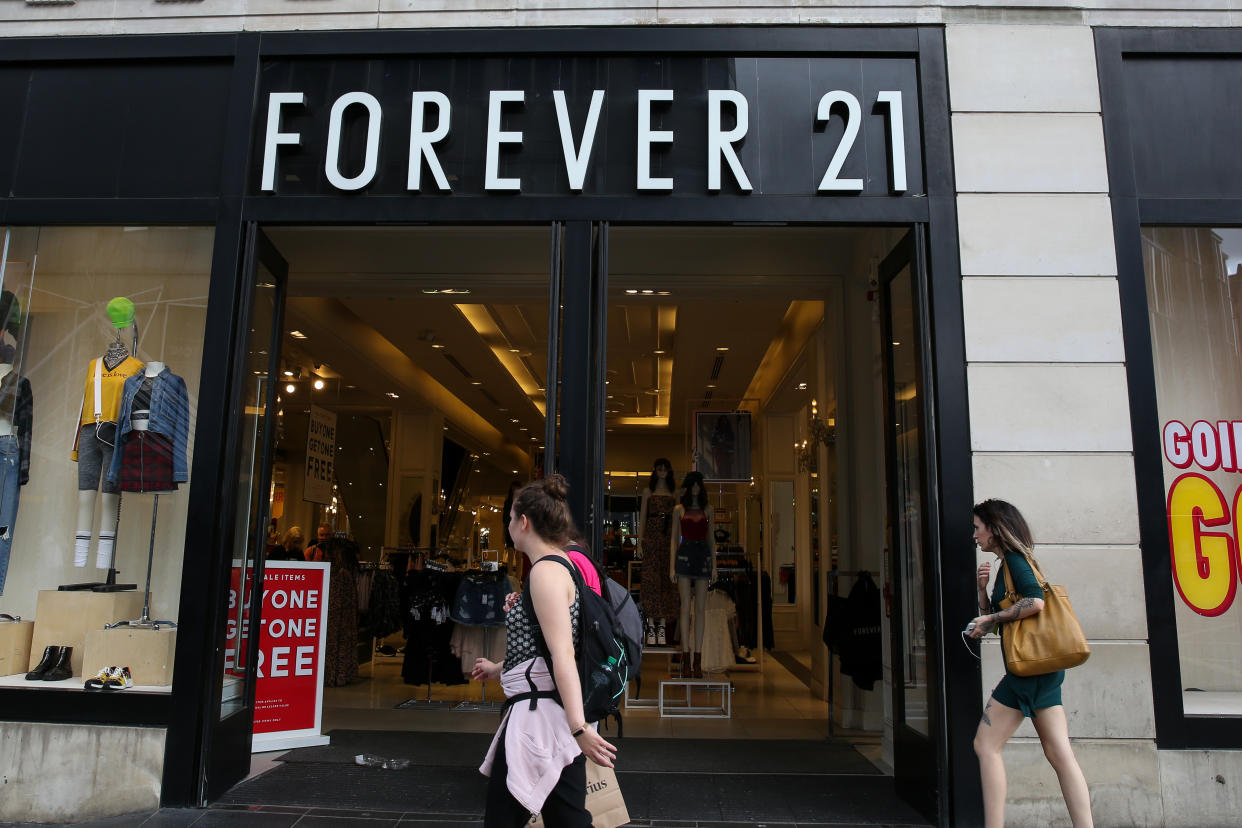Forever 21 files for bankruptcy and will close up to 350 stores

California-based fast fashion retailer Forever 21 has filed for bankruptcy protection and plans to close as many as 350 of its 800 stores as part of a restructuring process.
In a move that will see it retreat from 40 countries, the company said it would close its stores in most international locations, including in Asia and Europe. Up to 178 stores will be closed in the US.
Forever 21 operates a handful of stores in the UK, including a flagship store on London’s Oxford Street, which is the only store expected to remain open. The retailer’s Liverpool store was abruptly closed on Saturday.
The chapter 11 bankruptcy gives the company time to reorganise its faltering business, mainly by allowing it to renegotiate terms with creditors. It has also secured $275m (£224m) in new financing from its lenders, and $75m in new capital.
“We are confident this is the right path for the long-term health of our business,” Forever 21 said in a letter to customers.
“Once we complete a reorganization, Forever 21 will be a stronger, more viable company that is better positioned to prosper for years to come.”
READ MORE: Thomas Cook passengers could wait two months for refunds
Forever 21, a private, family-held company founded in 1984, has been flagging for months, as high-street behemoths struggle to compete with newer chains and online upstarts.
Though it became known for cheap, fashionable clothing, chains like H&M, Zara, and Primark flourished as consumers came to expect the latest trends to hit the high street faster than ever.
The closure of stores will be a blow to shopping centres and high streets in the US, where about 8,000 store closures have been announced so far this year.
Still owned by the Chang family, the company does not disclose its financials. But analysts pointed to its razor-thin profit margins as an explanation for why Forever 21 found it difficult to compete with e-commerce competitors.
“This was an important and necessary step to secure the future of our company, which will enable us to reorganize our business and reposition Forever 21,” said Linda Chang, executive vice-president of Forever 21, in a statement.


